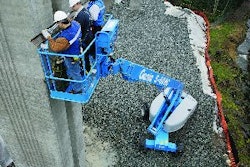When you are trying to improve your business, how do you decide which problem to work on first?
- Do you work on the one that annoys you the most?
- Do you work on the one creates the most frequent fires?
- Do you work on the one that you secretly most enjoy working on?
Today's topic is problem solving. But I'm bringing it to you with a twist.
We're not going to discuss problem solving tools and techniques. Many forests have died giving their life to supply the thousands of pages written about problem solving techniques. If you are interested in that topic, search the internet or log on to Amazon.com. You will find hundreds of articles, books and seminars on the topic of how to solve problems.
No, today we are going to explore a much rarer and more important problem solving issue: how to choose the right problem to solve. It's not as easy as you think.
A very dear, brilliant friend of mine, a retired professor from the University of Kansas' School of Business, spent more than 30 years studying how businesses and non-profit organizations improve themselves.
His research revealed a startling fact:
Managers rarely choose the right problem to solve!
More often than not, the management teams he researched actually came up with great solutions to the problems they worked on. Unfortunately, those problems had no bearing on the overall performance of their companies.
Solving problems that aren't the biggest hurdle to your business' success, no matter how well you solve those problems, is not going to produce the improvements you seek.
If the problem you solve doesn't have leverage, you are wasting time, energy and money. Worse yet, when you put a lot of effort into solving a problem and it doesn't improve your situation, you naturally assume that you came up with the wrong solution. So, you go back and try to solve the problem again. You may keep wasting time, energy and money on that very same problem because you will be convinced that you are solving it wrong.
If you had chosen the right problem to solve, one that has leverage on your business' performance, even a less-than-perfect solution would have had positive impact. You would have concluded you had come up with a great solution because: look at those great results!
Time to move on to the next most important problem: How do you know which problems have leverage?
To give you some idea of how difficult picking the right problem can be, Ken identified 29 different processes that control how well a business performs.
The leverage of each of the 29 differs for every company and situation. You've got to pick the right one to fix.
Here's a little search tip. Look closely at the problems that you have been avoiding. The ones you haven't been working on because you really don't want to face them. The big bad monsters hiding in your closet.
You can just about bet that one of them will be the one you need to work on the most. It will be the one that has the most leverage on your company's financial improvement. (For most contractors, that biggest and baddest monster hiding in the closet is the distaste for selling.)
This is why I wrote, posted on my website, and distribute my special report The 10 Biggest Mistakes Contractors Make.
I narrowed down the vast pool of mistakes contractors make to the set that has proven to be the most common and threatening. I wrote the report to help you identify the mistakes that get contractors in serious financial trouble.
If you suffer from any of those problems and are not working to solve them, you are putting yourself in harm's way. If you are not suffering from any of those 10 problems, then you are ready to establish the six systems that propel contractors to greatness.
To build your business, focus on the right problems - not the ones that are fun to solve. Not the ones that create the biggest heartburn for you. Focus on the ones that will most improve your bottom line.
The moral of the story: picking the right problem to solve is vastly more important than solving the problem perfectly.




















